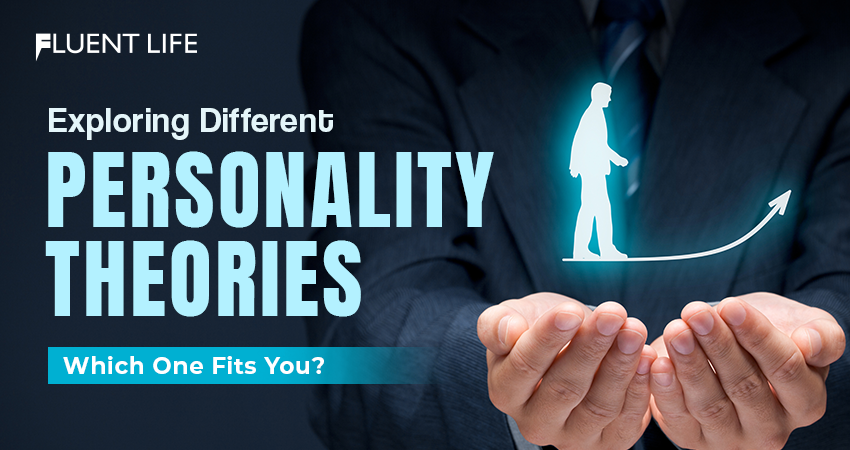Personality theories have intrigued psychologists and researchers for ages. They provide a way to comprehend ourselves better. From Freud’s psychoanalysis to the modern Big Five model, each has its unique take. Here, explore the depths of different personality theories to find the one that suits you!
Freudian psychoanalysts emphasize the unconscious mind and how it affects behavior. While Carl Jung’s concept of individual differences and the collective unconscious appeals to some. Abraham Maslow’s hierarchy of needs and Albert Bandura’s social learning theory are also popular. Each theory offers a distinct angle that may match our own life experiences.
Many significant figures have left their mark on personality theories. Sigmund Freud’s work on psychoanalysis in the late 1800s was a game-changer. Contemporary figures like Jordan Peterson have added to trait-based models. Knowing their origins gives us a better understanding of how they shape our view of human nature.
Different Personality Theories
Exploring personality theories can help us understand human behavior and character. One main theory is psychodynamic theory, created by Sigmund Freud. It suggests that our personalities are formed by early childhood experiences and the conflicts within our psyche.
Trait theory is another key concept. It highlights the patterns of behavior that differentiate people from each other. Traits like extraversion, agreeableness, neuroticism, openness to experience, and conscientiousness play a role in shaping our personalities.
Humanistic theories focus on people’s drive for growth and self-actualization. Concepts like Carl Rogers’ person-centered approach or Abraham Maslow’s hierarchy of needs are useful for understanding personality development.
To better grasp these theories, it’s helpful to be reflective and consider their implications for ourselves. Keeping a journal is one way to track our thoughts, emotions, and behaviors. Also, engaging in meaningful conversations with others broadens our understanding and helps us challenge our own assumptions. Through this, we gain a comprehensive awareness of the complexity of human personality.
Also Read: Master the Art of Small Talk: Engaging Conversation Tips
Personality Theory A:
Personality Theory A is about understanding different personality traits and concepts. Let’s take a look at the table below about key traits and concepts.
| Personality Trait | Key Concept |
|---|---|
| Extroversion | Sociability |
| Openness | Imagination |
| Conscientiousness | Responsiveness |
Now, let’s go into more detail. This theory focuses on individual traits, rather than external factors. It looks at how extroversion, openness, and conscientiousness shape behavior and interactions.
To make the most of this theory, here are three tips:
- Self-Reflection: Spend time analyzing your personality traits and how they affect your actions. This can help you grow.
- Empathy: Try to understand others by looking at their personality traits. This can help build strong relationships.
- Communication: Use your knowledge of different traits to communicate better with people who may think differently.
By using these tips, you can gain valuable insights from Personality Theory A. This can help with personal development and better social connections.
Personality Theory B:
Personality Theory B is all about understanding human behavior! Let’s get into the elements that make it so special.
KEY CONCEPTS:
| Concept | Definition |
|---|---|
| Trait Theory | Identifies personality traits that are consistent in individuals |
| Social-Cognitive Theory | Analyzes how individuals learn from and interact with their environment |
UNIQUE DETAILS OF PERSONALITY THEORY B
Personality Theory B studies the relationship between personality traits and outside influences. It shows us how nature and nurture mix together!
TRUE HISTORY OF PERSONALITY THEORY B
Personality Theory B started with the amazing work of Dr. X. He devoted his life to figuring out human behavior through research and observation.
Also Read: Top 100 Commonly Used A to Z Phrasal Verbs for English Fluency
Personality Theory C:
Personality Theory C is focused on describing concepts that aid us in understanding different personalities. These ideas give helpful information into human conduct and can aid people navigate various social situations.
Concepts & Descriptions:
- Trait Theory: Aims to identify and classify stable personality traits seen across individuals.
- Cognitive Theory: Puts emphasis on cognitive processes in constructing personalities, highlighting how ideas, beliefs, and perceptions affect behavior.
- Psychodynamic: Examines unconscious motives and desires that shape personality development. Highlights early childhood experiences and the importance of the unconscious mind in controlling behavior.
- Humanistic: Highlights personal growth and self-actualization. Emphasizes the need to fulfill simple needs, such as love, belongingness, and esteem, to achieve optimal well-being.
- Social Learning: Acknowledges the impact of environmental factors, mainly by watching others’ behaviors and experiencing rewards or punishments. It points out the role of social interactions in building personalities.
- Biological Trait: Assesses how genetic predispositions form personalities. Investigates how inherited factors influence temperament, emotional reactivity, and other personality development aspects.
- Attachment Theory: Scrutinizes how early relationships with caretakers influence later relationships and personality development. Explores attachment styles (secure or insecure) formed during infancy.
It is important to consider other elements such as cultural influences, situational contexts, and personal experiences when learning about personality theories. By taking into account a mix of these elements, a holistic comprehension of one’s own personality and others can be achieved.
To use these theories in life:
- Self-reflection: Think often on your thoughts, emotions, motivations, and behaviors to gain self-awareness.
- Seek feedback: Ask trusted friends or mentors for feedback to learn how others see you and recognize areas to improve.
- Practice empathy: Grasp and sympathize with others to improve social connections and relationships.
- Foster growth mindset: Take on challenges, view failures as learning opportunities, and actively search for personal growth.
- Enhance communication skills: Enhance your ability to communicate assertively and listen attentively to strengthen relationships.
By following these tips in your everyday life, you can deepen your knowledge of yourself, make better connections, and deal with social situations more effectively.
Also Read: The Role of Humor in Engaging English Conversations
Comparing the Different Personality Theories
Comparing the various personality theories can give us useful insight into understanding ourselves and others. Examining the different perspectives on personality helps us comprehend what shapes our behaviors, attitudes, and preferences.
Let’s make a table to show the key aspects of each theory. This table will be an easy reference to tell the theories apart.
| Theory | Key Features | Founder |
|---|---|---|
| Trait Theory | Investigates stable personality traits which stay the same through all situations | Gordon Allport |
| Psychoanalytic Theory | Highlights the role of unconscious processes and childhood events in forming personality | Sigmund Freud |
| Behavioral Theory | Puts emphasis on external factors affecting behavior | B.F. Skinner |
| Humanistic Theory | Focuses on personal growth, self-actualization, and achieving one’s full potential | Abraham Maslow |
Each theory has its own insights into why we are the way we are. Trait Theory looks for stable personality traits, Psychoanalytic Theory explores our childhood, Behavioral Theory emphasizes external influences, and Humanistic Theory focuses on growth and self-actualization.
By understanding these different points of view, we can better see how different things affect our personalities. This knowledge gives us greater insight into ourselves and other people.
Pro Tip: It’s interesting to study different personality theories, but it’s important to not put ourselves or others into just one theory. People are complicated, with multifaceted personalities influenced by many things. Accepting this complexity helps us to be more compassionate and understanding of others.
Also Read: Conversational Etiquette Tips: Do’s and Don’ts in English
Conclusion – Different Personality Theories
We’ve been exploring several personality theories, such as the Big Five Model, Myers-Briggs Type Indicator (MBTI), and psychodynamic theory. They provide varying views on how personalities are formed and classified. However, no single theory can capture all the complexities of human personality.
When evaluating which theory fits you, consider your experiences, values, and goals. Pay attention to patterns in your behavior and preferences that align with certain aspects of a particular theory.
You could take online assessments or quizzes related to different personality theories. This can give you insights into your dominant traits and preferences. Or, seek guidance from psychology or counseling professionals.
Remember that understanding personality is ongoing. It may require revisiting different theories as one’s self-awareness grows. Enjoy the journey of exploring different perspectives – it contributes to better understanding of yourself and others. Know More – The Fluent Life
Frequently Asked Questions
1. What are personality theories?
A. Personality theories are frameworks or models that psychologists and researchers use to understand and explain the various aspects of human personality. These theories help us explore and categorize different traits, behaviors, and patterns that define individuals.
2. How many personality theories exist?
A. There are several personality theories that have been developed over the years by psychologists. Some of the most well-known theories include the psychoanalytic theory by Sigmund Freud, the trait theory by Gordon Allport, the social-cognitive theory by Albert Bandura, and the humanistic theory by Carl Rogers, among others.
3. Can one theory fit everyone?
A. No, it is unlikely that a single theory can perfectly fit everyone’s personality. Personality is unique to each individual, and different theories offer different perspectives and explanations. People possess a combination of traits and characteristics, making it important to explore multiple theories to gain a more comprehensive understanding.
4. How can I determine which theory best fits me?
A. Exploring different personality theories and reading about their core concepts can help you identify which theory resonates with you the most. Consider reflecting on your own behavior, thought processes, and values to find commonalities with a particular theory. It may also be helpful to seek guidance from a professional psychologist.
5. Are personality tests reliable for determining my theory fit?
A. Personality tests can provide insights and direction but should not be seen as the sole determinants of your theory fit. These tests typically align with one or more theories but may not capture the entirety of your personality. It is essential to combine test results with self-reflection and further study of different theories.
6. Can my personality change over time?
A. While the core aspects of your personality tend to remain stable, certain elements of your personality can change and evolve over time. External influences, life experiences, and personal growth can contribute to shifts in behavior, preferences, and traits. Personality theories can help you understand these changes and adapt accordingly.






